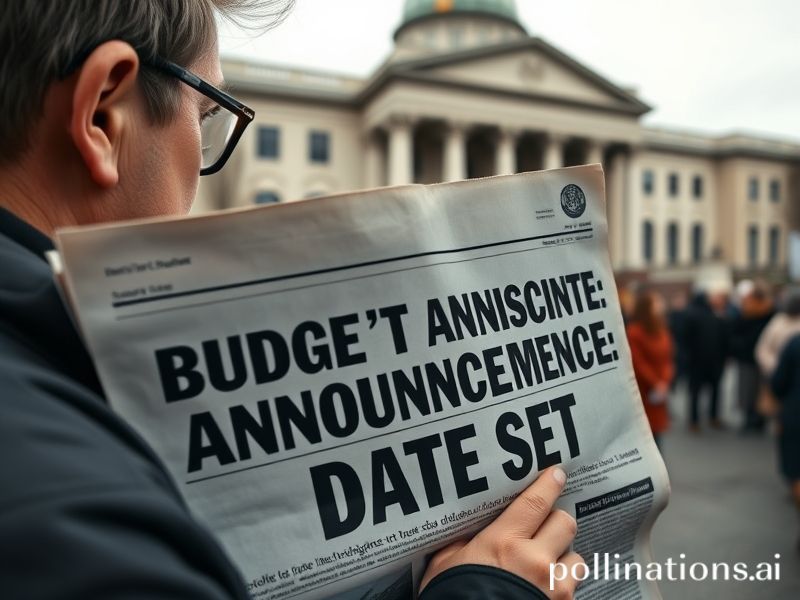When Is the Budget? The Viral Question That’s Got the World Talking
# **When Is the Budget? The Global Obsession with Fiscal Deadlines**
In the vast, chaotic landscape of the internet, trends come and go like fleeting memes—here today, gone tomorrow. But every so often, a phrase or question captures the collective consciousness of the global digital populace. Enter: **”When is the budget?”** This seemingly mundane query has become a viral sensation, sparking memes, debates, and even political commentary. But why? What makes this question so compelling that it’s trending across continents? Let’s dive in.
### **The Cultural Context: A Universal Language of Finance**
At its core, the question **”When is the budget?”** is a universal one. Whether you’re in the U.S., the U.K., India, or anywhere in between, budgets are a part of life—personal, household, and national. Governments around the world release annual budgets, outlining spending plans, tax policies, and economic priorities. These budgets are often hotly anticipated, as they can impact everything from your paycheck to the cost of your morning coffee.
In many countries, the budget announcement is a major event, akin to a national holiday. In India, for example, the Union Budget is presented on the first day of February, and the entire nation tunes in (or at least pretends to care). The U.S. has its own version, with the federal budget released in February or March, though Congress often drags its feet on approval. The U.K. has its Autumn Budget, which is met with a mix of anticipation and dread, depending on who you ask.
### **The Social Impact: Memes, Misinformation, and Misdirection**
So why is **”When is the budget?”** trending now? Part of the appeal lies in its simplicity and relatability. It’s a question that cuts across political lines, economic statuses, and even age groups. Whether you’re a student wondering about tuition fees or a retiree concerned about pension cuts, the budget affects everyone.
The phrase has also become a meme in its own right. On platforms like Twitter and Reddit, users have turned it into a running joke, often pairing it with absurd or exaggerated scenarios. For example, one popular meme shows a person frantically searching for the budget date, only to realize it’s already been announced—and they’ve missed it. The humor lies in the universal fear of missing out (FOMO) on something that, let’s be honest, most people don’t fully understand.
But beyond the memes, there’s a deeper layer to this trend. The question **”When is the budget?”** has also become a way for people to express their frustration with government transparency—or lack thereof. In many countries, budget announcements are shrouded in secrecy until the last minute, leading to speculation, misinformation, and even conspiracy theories. The trend reflects a growing demand for accountability and clarity in how governments manage public funds.
### **The Significance: A Global Conversation on Fiscal Responsibility**
At its heart, the **”When is the budget?”** trend is about more than just a date. It’s a conversation starter about fiscal responsibility, economic policy, and the role of government in our lives. It’s a reminder that, whether we like it or not, budgets shape our world—and we all have a stake in them.
The trend also highlights the power of the internet to turn even the driest of topics into something engaging and shareable. By framing the budget as a relatable, meme-worthy question, people are able to engage with complex economic issues in a way that feels accessible and even fun.
### **Conclusion: The Budget, the Meme, and the Future**
So, when is the budget? The answer depends on where you live, but the question itself has become a global phenomenon. It’s a testament to the internet’s ability to turn even the most mundane topics into viral sensations. Whether you’re laughing at the memes or debating economic policy, the **”When is the budget?”** trend is a reminder that finance doesn’t have to be boring—and that, in the digital age, everything is fair game for a good joke.
As we move forward, let’s hope that the trend continues to spark meaningful conversations about fiscal responsibility, transparency, and the role of government in our lives. And who knows? Maybe next year, the budget announcement will come with its own viral meme.
—







